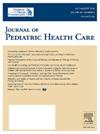儿科护士执业指导:一项全国性调查
IF 1.8
4区 医学
Q2 HEALTH POLICY & SERVICES
引用次数: 0
摘要
类别/日期临床研究讲台演讲:NAPNAP研究议程优先主题:心理健康,儿科劳动力和传染病预防。于2025年3月11日在NAPNAP第46届全国儿科保健会议上发表。背景和意义随着儿科执业护士(PNP)进入劳动力市场,当从注册护士的角色转变为PNP时,会发生一段角色转变。在这段时间里忍受的挣扎与工作满意度下降、生产力下降和患者治疗效果下降有关,导致人员流失。相比之下,过渡期间的积极经验已被注意到增加信心和工作满意度,这可能会提高保留率。目的本研究的目的是确定指导对pnp角色转换的影响。方法本研究已获得irb批准。在REDCap中创建了一个包含27个问题的调查,包括开放式和封闭式问题,并通过电子邮件发送给儿科护士认证委员会的11,345名pnp名单。调查内容包括人口统计、首次担任PNP角色的时间长短和师徒经历。描述性统计描述了NPs的年龄、工作年限和师徒关系变量。定性软件MaxQDA用于组织、编码和分析开放式问题,使用定性归纳和演绎描述性编码方法。结果834名pnp完成了调查,其中454名(54.4%)的第一职位有导师,380名(45.6%)的第一职位没有导师。与没有师徒关系的人相比,师徒关系对他们在第一份工作上停留的时间有显著影响(p<0.0001)。师徒关系进一步划分为正式导师107人(23.73%)和非正式导师344人(76.2%)。有导师的人认为导师的重要性是非常有益的(97.10%)。对开放式问题的分析显示,师徒关系有以下积极影响:感觉被支持,基础牢固,随着时间的推移,专业成长,对自己和患者的强烈支持,以及工作满意度。讨论与结论本研究的数据表明,在第一个PNP角色中,师徒关系与工作保留之间存在正相关。向新的pnp提供指导可能会产生短期和长期的重大影响。需要进一步研究以了解非正式/正式指导如何影响新pnp的实践和保留。本文章由计算机程序翻译,如有差异,请以英文原文为准。
Mentorship Among Pediatric Nurse Practitioners: A Nationwide Survey
Category/Date
Clinical Research Podium Presentations: NAPNAP Research Agenda Priority Topics: Mental Health, Pediatric Workforce and Infectious Disease Prevention. Presented at NAPNAP’s 46th National Conference on Pediatric Health Care, March 11, 2025.
Background & Significance
As pediatric nurse practitioners (PNPs) enter the workforce, there is a period of role transition that occurs when leaving the role of registered nurse to PNP. Struggles endured during this time have been linked to decreased job satisfaction, productivity and poorer patient outcomes, resulting in turnover. In contrast, positive experiences during transition have been noted to increase confidence and job satisfaction, which may improve retention.
Purpose/ Aims
The purpose of this study was to determine the effect of mentorship on PNPs during their role transition.
Methods
This study was IRB-approved. A 27-question survey was created in REDCap consisting of open-and closed-ended questions and emailed to the Pediatric Nurse Certification Board listserv of 11,345 PNPs. Survey included demographics, length of time in first PNP role, and mentorship experiences. Descriptive statistics characterized NPs age, employment length, and mentorship variables. Qualitative software MaxQDA used to organize, code, and analyze open-ended questions using qualitative inductive and deductive descriptive coding approach.
Results
834 PNPs completed the survey, including 454 (54.4%) who had a mentor in their first role and 380 (45.6%) who reported no mentor. Mentorship was seen to have a significant impact on staying in their first position longer than those without(p<0.0001). Mentorship was further delineated as formal mentors for 107 (23.73%) versus informal for 344 (76.2%). Those with mentors reported the importance of mentorship to be highly beneficial (97.10%). Analysis of open-ended questions revealed mentorship to have the following positive impact: feeling supported, strong foundation, professional growth over time, strong advocacy for self and patients, and job satisfaction.
Discussion and Conclusions
Data from this study demonstrated a positive association between mentorship and job retention in the first PNP role. Providing mentorship to new PNPs could have a significant impact both short- and long-term. Further research is warranted to understand how informal/formal mentorship influences new PNPs’ practice and retention.
求助全文
通过发布文献求助,成功后即可免费获取论文全文。
去求助
来源期刊

Journal of Pediatric Health Care
NURSING-PEDIATRICS
CiteScore
3.40
自引率
10.70%
发文量
140
审稿时长
24 days
期刊介绍:
The Journal of Pediatric Health Care, the official journal of the National Association of Pediatric Nurse Practitioners, provides scholarly clinical information and research regarding primary, acute and specialty health care for children of newborn age through young adulthood within a family-centered context. The Journal disseminates multidisciplinary perspectives on evidence-based practice and emerging policy, advocacy and educational issues that are of importance to all healthcare professionals caring for children and their families.
 求助内容:
求助内容: 应助结果提醒方式:
应助结果提醒方式:


